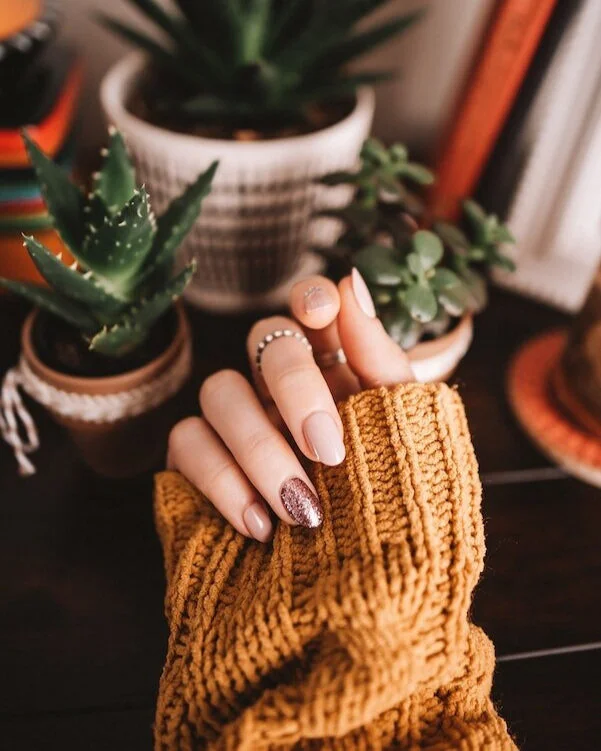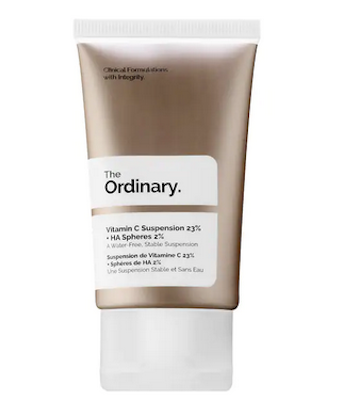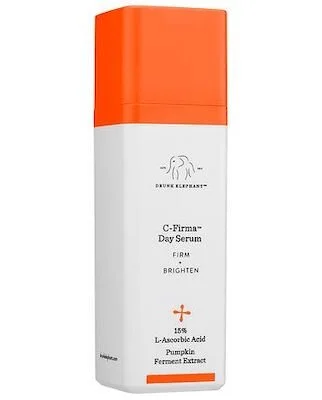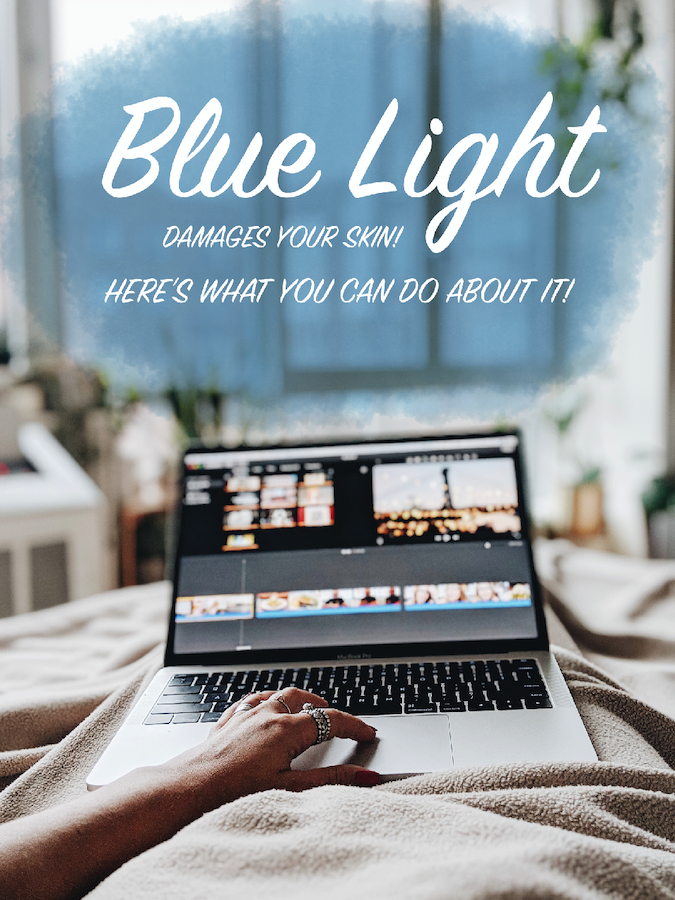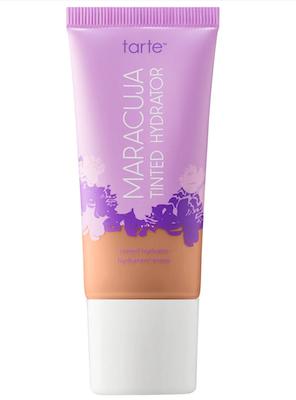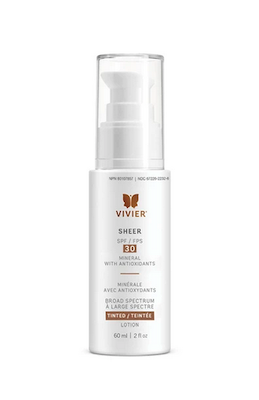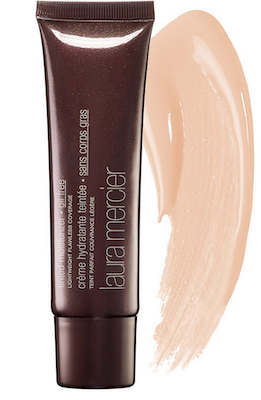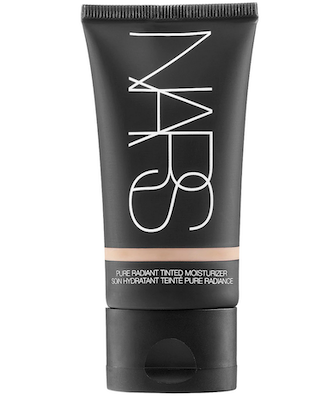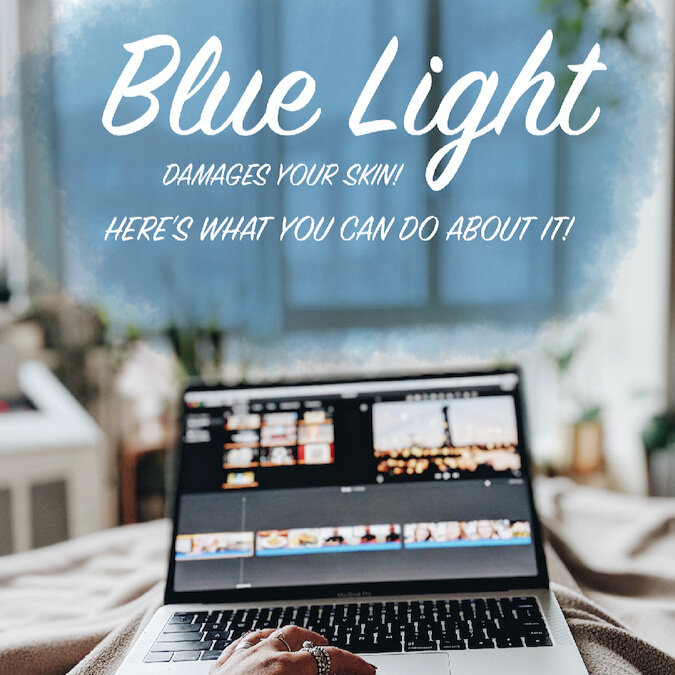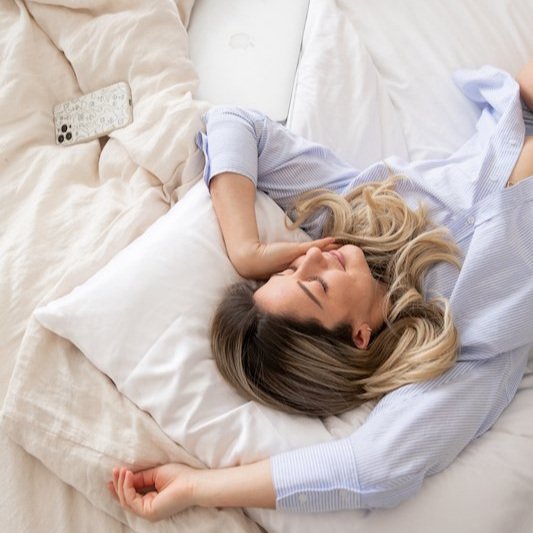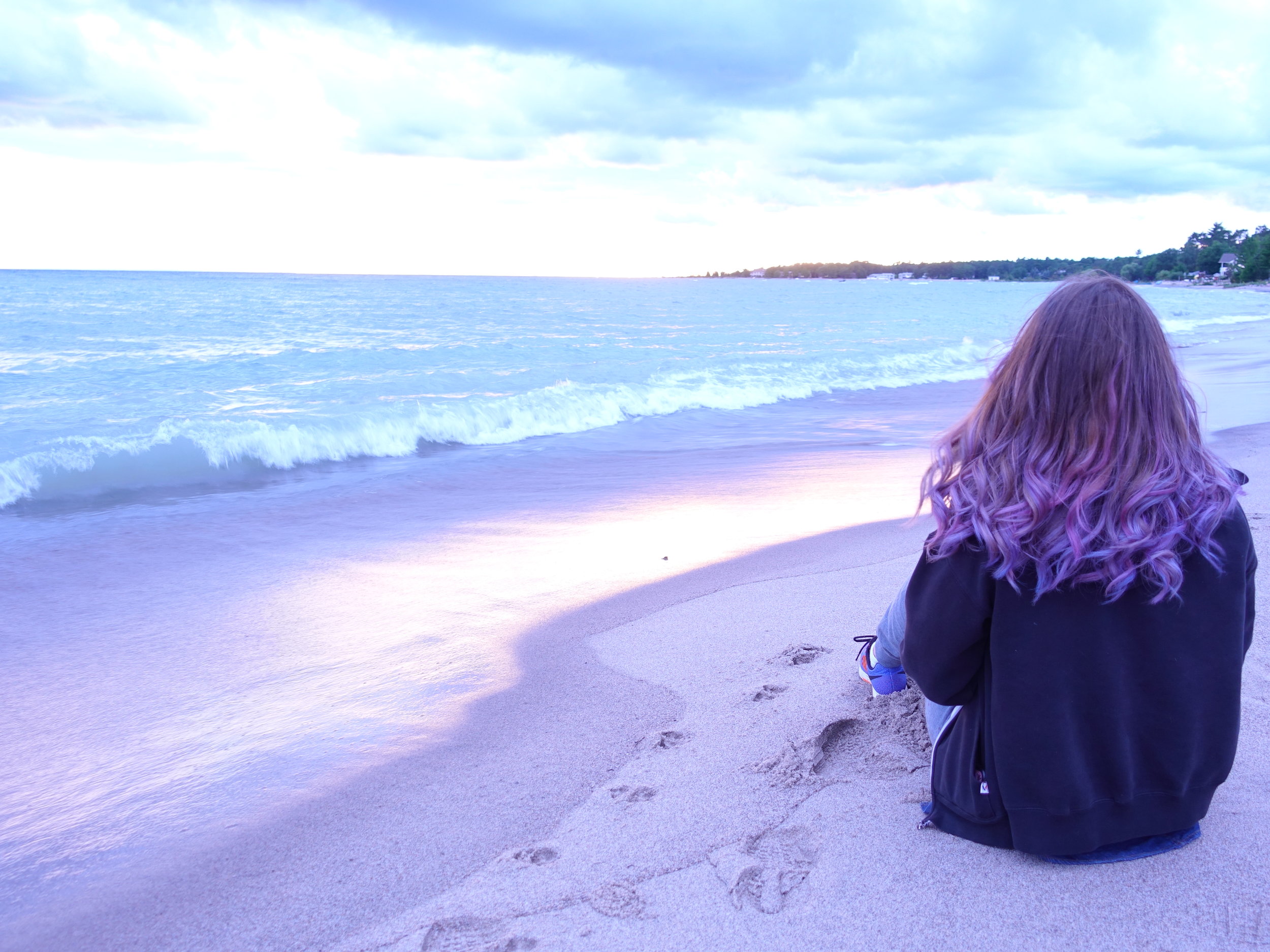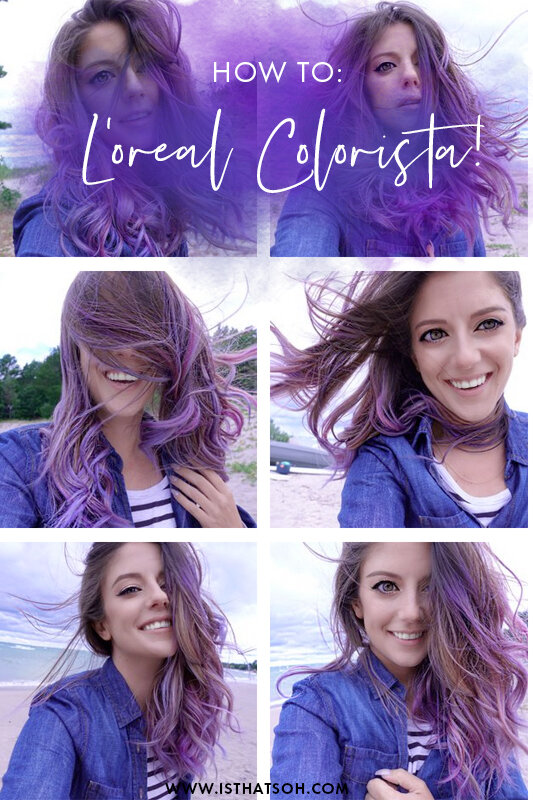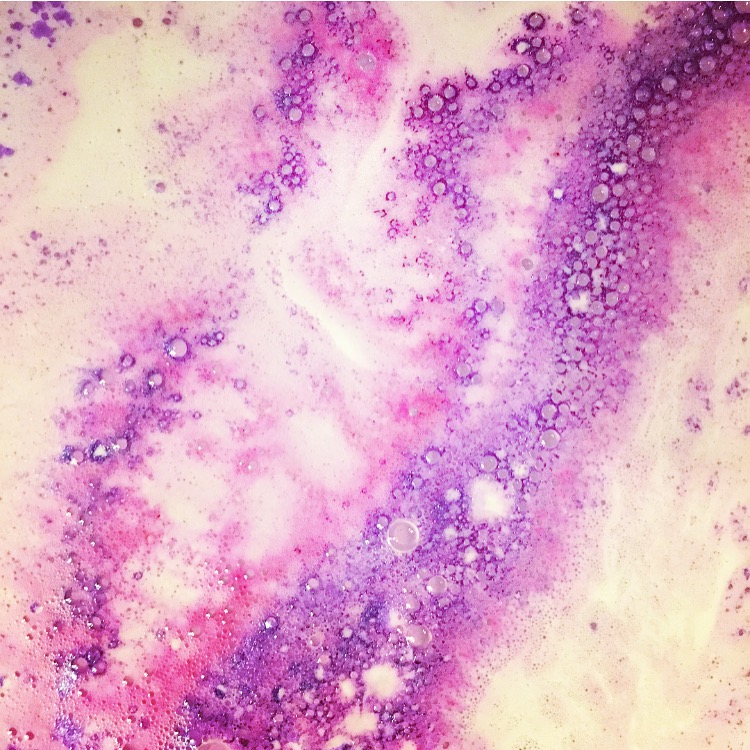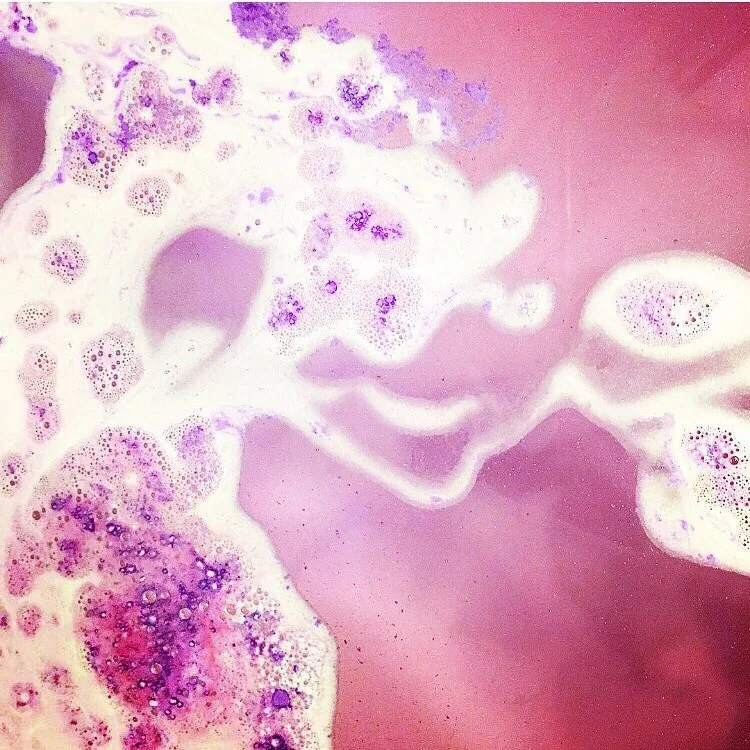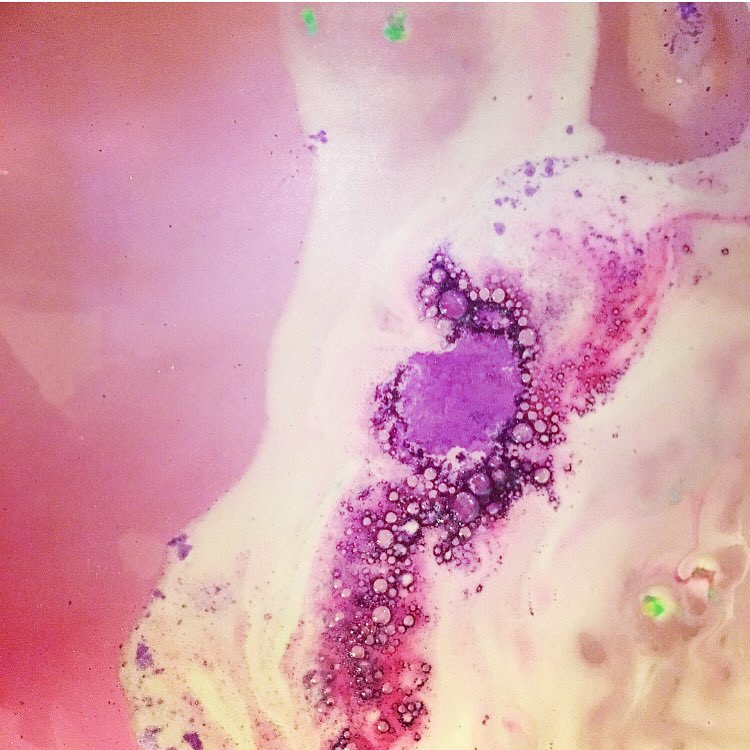* Please Note - Some links in this post may be affiliate links *
Since I relying heavily on both my computer and phone for work as well as for entertainment (Thanks COVID!), I am spending so much time in front of a screen these days! I was shocked to learn after a recent visit to my dermatologist, that the dark spots (hyperpigmentation) I recently noticed that had appeared on my face (especially around my eye area) were due to the blue light that emits from my computer and phone screen! I knew it was a culprit for eye strain, cataracts, glaucoma, and other eye diseases, but was completely unaware of the damage it was causing to my skin!
WHAT IS BLUE LIGHT AND WHAT ARE THE SIDE EFFECTS OF BLUE LIGHT?
In a nutshell, blue light is a high-energy, short-wavelength light that emits from the sun, indoor lights, and our screens. Normally this wouldn’t be an issue but now, since most of us spend over 50% of our day in front of a screen, the damage it is causing to our skin has become even more apparent!
Currently, there is evidence showing that blue light contributes to the development of brown spots and skin hyperpigmentation around the mouth, eyes, and face such as melasma. Currently, research is being done to see if it could also be the possible cause of premature photoaging and the breakdown of collagen known to cause wrinkles and impact skin laxity. Further, Dr. Shari Marchbein, a board-certified dermatologist and clinical assistant professor of dermatology at New York University School of Medicine says, "There's also evidence that as blue light penetrates the skin, reactive oxygen species are generated, which leads to DNA damage, thereby causing inflammation and the breakdown of healthy collagen and elastin, as well as hyperpigmentation."
WHAT INGREDIENTS PROTECT AGAINST BLUE LIGHT?
Both my dermatologist and Marchbein recommend finding a product that you can use daily that contains iron oxide and antioxidants in the ingredient list. Both of these ingredients help create a protective barrier from blue light rays that emit from our phones and computers as we continue to work from home. In addition, my dermatologist also always tells me to wear sunscreen with a minimum SPF of 30 even in the winter or on cloudy days as skin damage from the sun’s rays is still an issue even if the weather gives you a different impression.
In addition to adding products to protect your skin from blue light, lowering the brightness level on your screens to 50 percent or switching on the darker "Night Shift" setting (as long as you don’t dim it so much that you're straining your eyes) are two additional suggestions to helping prevent skin damage from blue light along with going hands-free as much as possible and ironically social distancing from your devices. LOL!!

